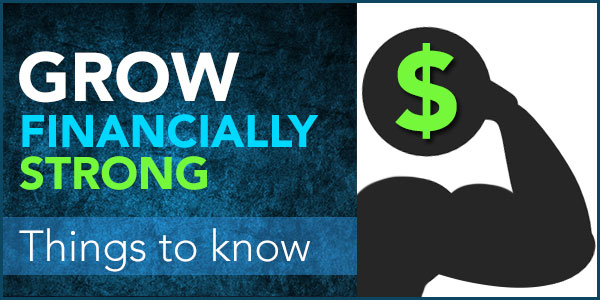Sadly, curriculum be it in high school or college, personal finance is yet to find a place in them. So, its quite obvious that you’d get a bit lost when it comes to money management, especially at an early, greenhorn years of your adulthood, i.e., youth.
Still, like there’s a silver lining to all the clouds, there are ways by which you can up your knowledge about personal finance to live a prosperous and comfortable life.
Therefore, here are some basic personal finance questions you should get answers of to grow financially healthy and retire rich.
Question 1: Do you have a control over your own financial future?
Answer: First and foremost, if you don’t know how to manage your money, then be prepared to let others manage it for you and probably in the wrong, disastrous way. There is a group of people who are unscrupulous and are lurking around to pounce on desperate preys like you. They could come into your life in the form of commission-based financial planners or naive, self-professed credit counselors. While there are some bona-fide (good faith professionals) who would want to help you in your quest to buy a house, but they too might land you in a tight spot with an unpredictable adjustable-rate mortgage.
So, instead of depending on others for advice, you must take charge of your own finances and go through some elementary personal finance books. This would allow you to prevent others from taking you for granted and catch you off guard, financially. The first step to wealth is to understand how money works and how it can work for you in the best possible manner. This way you can deal with a sly spouse who’s been siphoning off your bank accounts or friends who want you splurge on lavish parties every weekend and save your hard-earned dollars.
Question 2: Do you have self-control?
Answer: Consider yourself fortunate, if your parents have given you a lesson or two on proper money management while you were a kid. However, if not, then the sooner you get hold of the basics, the better. This will help you to keep your financial house in order. As a first step to your financial literacy, begin with saving money to buy an item, instead of wielding the plastics.
Remember, credit is something that is always available at your beck and call, but if you don’t learn the art of saving money, then you would never be able to grow your financial status. Ask yourself, “Is it at all preferable to pay interest while I can get the same at no extra cost, if I make cash payment”. Basically, it is no great deal to pay interest on a box of jam or pair of trousers. Moreover, if you develop a habit of paying through your credit cards, then it is very likely that you’d keep making the payments for the same items over the next 10 years or so.
Still, if you prefer to cling on to your credit cards for the rewards they offer or want to enjoy the convenience of paying whenever you want, then make sure you pay back all the balances on time. Besides, keep limited number of cards with you so that it doesn’t become overwhelming later.
Question 3: Do I have an emergency fund?
Answer: There’s an old saying in the world of personal finance, it goes this way “pay yourself first”. You may have student loans, credit cards or mortgages to pay off, but it is always advisable that you find out some amount of money (no matter how trivial it is) to set aside as an emergency fund every month. An emergency fund could help you stave off quite a number of financial hiccups and let you to sleep at night in peace.
Apart from that, by the virtue of saving money consistently, you’d be surprised by the sheer amount of money you’ve saved over a career of, say 30 years. So, consider the contribution made towards your emergency fund as a non-discretionary, monthly cost. By the time you retire, your nest egg will have an added support to cover up any sort of deficiency at any moment. The same emergency fund could also double up as your vacation fund or a downpayment to buy a better and bigger house.
However, don’t just keep your money under the mattress, rather put them into work for you. For example, you may put your extra cash in some of the high-interest yielding accounts like certificate of deposits (CDs), savings account or even a money market account. This step of yours will prevent your fund from losing its value due to inflation.
Questions 4: How much do I know about taxes?
Answer: Understanding the nuances of income taxes would serve to fortify the foundation of your financial house. This you should know even if you've not got your first paycheck yet. You must have the capability to draw up your financial goals and obligations as soon as you are offered with a paycheck. This is because it is important that you know how much you can save after meeting your taxes obligations and fulfill your own goals accordingly. Luckily, there are ‘n’ number of calculators out there online that you can use.
Such financial widgets will relieve you of the stress and the dirty work that comes with managing your taxes and other financial issues. In addition, make sure you learn the ropes of preparing your annual tax return papers on your own. Having this skill will prevent you from suffering due to bad tax advices and tax myths that are rife in the market.









